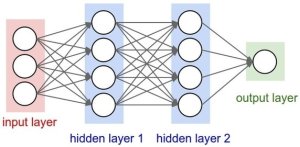
Artificial Intelligence and Creativity
Artificial intelligence (AI) is set to become the most groundbreaking and defining technology of the 21st century. But what exactly comes to mind when people think about AI? Programs that can beat you at poker? Robots that can perform complex tasks with perfection? Or perhaps autonomous beings that are on the verge of replacing your job?
When we think about AI, we often look at those areas where humans can easily be replaced: high-level computation, manual labour, or data-driven optimization. Yet, there is now a new wave of emerging potential for AI in creative industries – one of which happens to be musical composition.
Aiva Technologies is one of the leading startups in the field of AI music composition. It was founded just last year in Luxembourg and London by Pierre Barreau, Denis Shtefan, Arnaud Decker, and Vincent Barreau.
They have created an AI called “Aiva” (Artificial Intelligence Virtual Artist) and taught it how to compose classical music – an emotional art which is usually considered to be a uniquely human quality. Aiva’s musical pieces are used as soundtracks for film directors, advertising agencies, and even game studios.
This February, they were invited to participate in the highly-acclaimed European Film Market in Berlin, as well as the Artificial Intelligence in Business & Entrepreneurship (AIBE) Summit in London. In the past, they were backed by Luxinnovation’s incubator program, and have even received praise from Xavier Bettel, the Prime Minister of Luxembourg himself.
Having already released its first album called Genesis, as well as many single tracks, Aiva recently became the first AI ever to officially acquire the worldwide status of Composer. It was registered under the France and Luxembourg authors’ right society (SACEM), where all of its works reside with a copyright to its own name.
Give Aiva’s music a listen and see what you think:
Music With a Purpose
The technology behind Aiva is based on deep learning algorithms which use reinforcement learning techniques. Deep learning is a particular type of machine learning whereby multiple layers of “neural networks” are programmed to process information between various input and output points. Although only loosely based on the human brain’s neural structure, it helps to think of it that way. This allows the AI to understand and model high-level abstractions in data, such as the patterns in a melody or the features in a person’s face.

Reinforcement learning, on the other hand, is a machine learning technique which teaches a software agent (AI) to decide what action to take next in order to reach certain objectives by maximizing its “cumulative reward.” Unlike supervised learning, reinforcement learning does not require labelled inputs and outputs of data. This allows the AI to “find its own way” around the data and improve its performance without being given any explicit instructions, which makes it easier to capture the diversity and variation found in creative arts like music.
According to the team: “We have taught a deep neural network to understand the art of music composition by reading through a large database of classical partitions written by the most famous composers (Bach, Beethoven, Mozart, etc). Aiva is capable of capturing concepts of music theory just by doing this acquisition of existing musical works.”
After having listened to a large amount of music and learned its own models of music theory, Aiva composes its very own sheet music. These partitions are then played by professional artists on real instruments in a recording studio, achieving the best sound quality possible.
Although Aiva is able to compose classical melodies in a matter of minutes, its clients are usually looking for music which “supports the storytelling of their visual content.” To achieve that, it can sometimes take them several iterations before the right sound is generated.
When asked why they chose to focus on classical music, the founders of Aiva Technologies explain: “(1) it is the predominant style used in movies, games, commercials, and trailer soundtracks, and (2) all of the partitions we use to train Aiva are copyright-expired”. Although the music Aiva listens to and learns from is indeed copyright-free, its own compositions are not in the public domain as they are registered under SACEM.
A Musical Turing Test

In the future, the team plans to teach its AI how to learn any style of music. The interesting challenge presented by modern music is not with the composition itself, but the instrumentation and sound design. For example, the most iconic bands have a distinct sound that makes them so unique. Trying to create those unique sounds that makes their music stand out with an AI will be the next problem to crack in order to reach human-level performance.
Will AI-composed music ever be indistinguishable from the work of human musicians? Well, according to the team, they have already conducted several Turing tests by asking professionals to listen to Aiva’s pieces – and so far none of them were able to tell that they were composed by an AI.
However, there is no need to worry just yet. Aiva’s compositions still require human input with regards to orchestration and musical production. In fact, Aiva’s creators envisage a future where man and machine will collaborate to fulfill their creative potential, rather than replace one another.